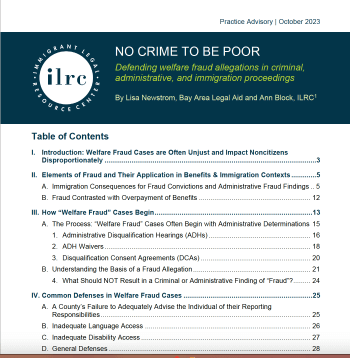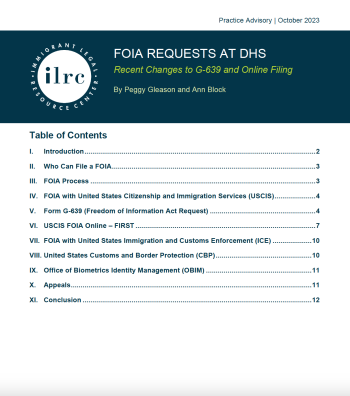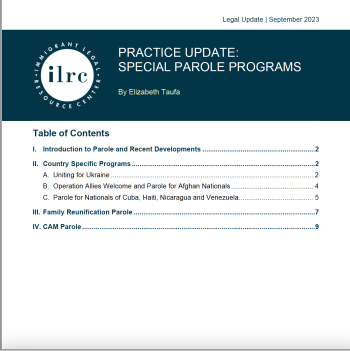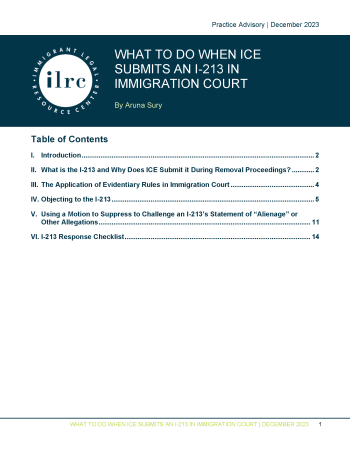
This practice advisory addresses what a practitioner can and should do when DHS submits an I-213 to prove “alienage” or any other facts in a case. After a brief discussion of the purpose of an I-213 and why DHS often submits it during removal proceedings, this advisory discusses objections that practitioners should consider making in order to exclude the I-213 from the record in removal proceedings or, at a minimum, to argue that the I-213 should not be given any significant weight by the immigration judge. It discusses how to overcome the presumption that I-213s are inherently trustworthy and concludes with a synopsis of when and how to submit a motion to suppress in cases involving regulatory or constitutional violations.
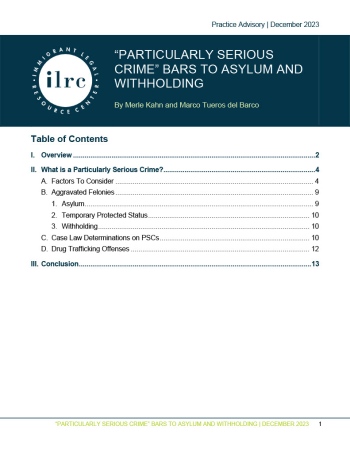
This advisory analyzes and explains the particularly serious crime bar to asylum and withholding of removal. It describes the factors to consider in determining whether a crime is a "particularly serious crime" and how to challenge a particularly serious crime determination.
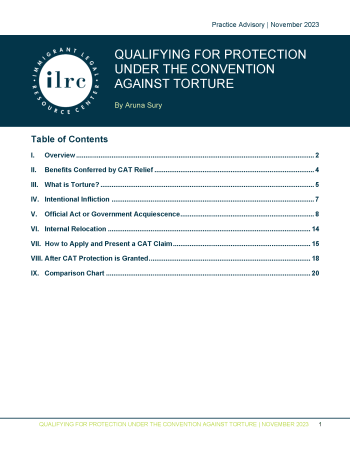
Protection under the Convention Against Torture (CAT) is an important relief option for individuals who are unable to qualify for asylum or withholding of removal. This advisory reviews the legal standard for CAT protection. It also provides an overview of seminal Board of Immigration Appeals and federal circuit court decisions that discuss the various elements of a CAT claim. The end of the advisory contains a useful chart which compares asylum, withholding of removal, and CAT.
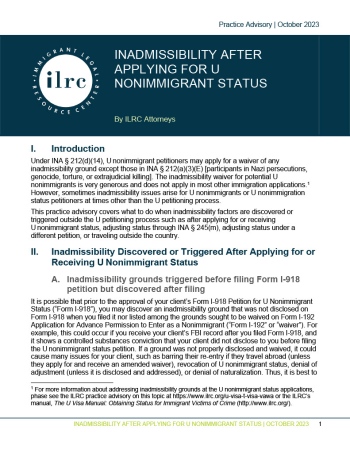
This practice advisory covers what to do when inadmissibility factors are discovered or triggered outside the U petitioning process such as after applying for or receiving U nonimmigrant status, adjusting status through INA § 245(m), adjusting status under a different petition, or traveling outside the country.
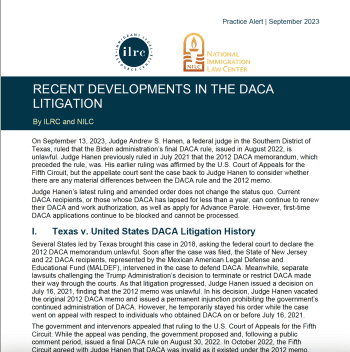
On September 13, 2023, Judge Andrew S. Hanen, a federal judge in the Southern District of Texas, ruled that the Biden administration’s final DACA rule, issued in August 2022, is unlawful. Judge Hanen previously ruled in July 2021 that the 2012 DACA memorandum, which preceded the rule, was. His earlier ruling was affirmed by the U.S. Court of Appeals for the Fifth Circuit, but the appellate court sent the case back to Judge Hanen to consider whether there are any material differences between the DACA rule and the 2012 memo.
This Practice Alert goes over Judge Hanen’s latest ruling. It’s important to note that the amended order does not change the status quo. Current DACA recipients, or those whose DACA has lapsed for less than a year, can continue to renew their DACA and work authorization, as well as apply for Advance Parole. However, first-time DACA applications continue to be blocked and cannot be processed.
This Practice Alert goes over Judge Hanen’s latest ruling. It’s important to note that the amended order does not change the status quo. Current DACA recipients, or those whose DACA has lapsed for less than a year, can continue to renew their DACA and work authorization, as well as apply for Advance Parole. However, first-time DACA applications continue to be blocked and cannot be processed.
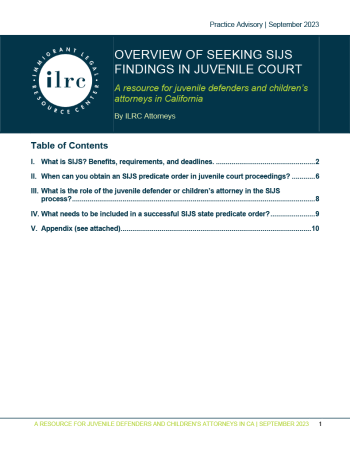
This advisory provides basic information on how to obtain the SIJS predicate order in juvenile court. It describes the benefits, requirements, and deadlines associated with SIJS, and discusses the role of the juvenile defense or children’s attorney in the process. It includes a sample SIJS predicate order from juvenile justice proceedings.
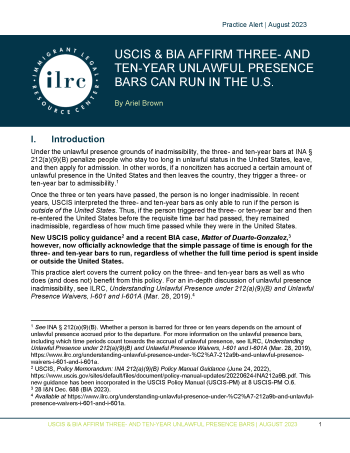
This practice alert provides an overview of new USCIS policy guidance and a recent BIA case that now officially acknowledge that the three- and ten-year unlawful presence bars can run in the United States. This practice alert summarizes current policy on the three- and ten-year bars as well as covering who does (and does not) benefit from this policy.
